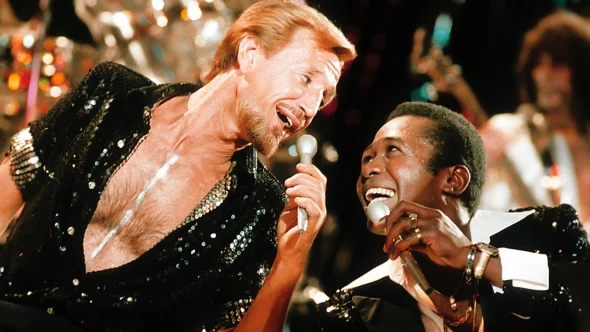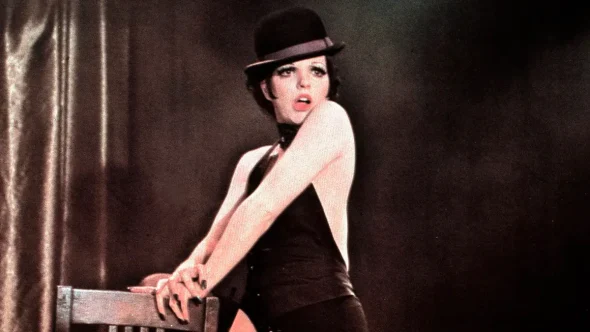
Joshua John Miller's parents are horror legends in certain circles. His father, Jason Miller, starred as Father Karras in The Exorcist, for which he was Oscar-nominated in 1974; his mother is cult movie actress Susan Bernard, best known for 1965's Faster, Pussycat! Kill! Kill!. For a time, it seemed like their son would follow in their footsteps: Miller became a child actor, making his film debut in 1982's Halloween III: Season of the Witch.
"One of the things that stood out to me in making Halloween III was the presence of a female producer running the set, Deborah Hill. I felt this maternal presence and I realized, 'Oh, this is not just a patriarchal structure. There was inclusivity if you fought for it.' Which means there was a place for me," Miller recalls. That instinct was reaffirmed when he appeared in Kathryn Bigelow's Near Dark. "Here was this statuesque, striking, brilliant woman helming this incredibly muscular vampire Western."
Moreover, "It felt transgressive and punk, because we were subverting the expectations of the vampire genre," he says, "and she was approaching what would normally be a B-movie as an art film and the merging of art and genre. That was my first lesson that genre can be art."
Miller eventually moved behind the camera and made his directorial debut with 1999's The Mao Game. In 2015, he wrote The Final Girls as an homage to his mom's scream queen days. His new movie, The Exorcism is inspired by his dad's experience on The Exorcist. Russell Crowe stars as Anthony Miller, an actor attempting to make a comeback by playing a priest in a horror remake.
"I wanted to do a portrait of my father, who had been deeply affected by his experience with The Exorcist. It was a shadow that loomed large over most of his life," explains Miller, who co-wrote the script with partner M.A. Fortin. "I wanted to examine that iconography that you cannot escape from and that defines you as a person. For my father, it was very challenging for him to ever separate himself from this monolith of a film, and it literally haunted him — not in the literal sense of being cursed, but it loomed so large that he could never quite escape its clutches. I was interested in unpacking that."
Below, Miller shares with A.frame five of his favorite films, including — yes — The Exorcist. "I'm not necessarily interested in the horror genre as an inspiration point," he adds as disclaimer. "I'm interested in stories that are horrifying."

Directed by: Bob Fosse | Written by: Robert Alan Aurthur and Bob Fosse
I saw very young — probably too young — when I saw All That Jazz for the first time, but it resonated with me forever. I had never quite seen anything like that, a timeline so deconstructed, where watching it feels like looking at a kaleidoscope. The images are constantly shifting and changing as you watch it and get deeper into the story, between the past, present and afterlife. Also, it was very explicit sexually.
I loved the editing, which was extraordinary. It sort of mimics the choreography. I always loved dance, and the actual editing of the film felt like the movement in Fosse's choreography.

Directed by: Bob Fosse | Written by: Jay Allen
Cabaret is another Fosse movie, where he took unlikely genres and mixed them. In its soul, it's a historical musical about the rise of the Third Reich, but it's told in this incredibly frank way when it comes to sexuality. It was one of the first movies that created a landscape that I wanted to live in, except for Berlin 1930s part. I mean the presence non-binary, queer, bisexual characters.
Christopher Isherwood didn't love the movie, apparently. It's based on The Berlin Stories, but I think his anger was the fact that he thought it would be this frothy musical, but Fosse made it a political film.

Directed by: Édouard Molinaro | Written by: Marcello Danon, Édouard Molinaro, Jean Poiret and Francis Veber
I went with my grandmother to see La Cage aux Folles at the former Cineplex Odeon Cinemas at the Beverly Center. I must have been 5 years old, and it was the first time I saw men in drag. It's hard to explain, but I physically felt like I saw part of myself on screen. At the time, I didn't have the intellectual capacity to understand what was happening, but those images are forever burned in my memory.
Directed by: Michelangelo Antonioni | Written by: Michelangelo Antonioni, Elio Bartolini and Tonino Guerra
L'Avventura was unlike anything I had ever seen. Up until L'Avventura, I felt like time in film was linear and mimicked real life. But the way Antonioni plays with time and pace, he creates his own time. He creates psychological time and tension within timing, and it changed the way that I expected films to come to me. I realized that you could do things like hold shots for 10 seconds or 20 seconds. This, for me, was not an American approach. This was obviously an Italian visionary's approach and that has always stayed with me forever.

Directed by: William Friedkin | Written by: William Peter Blatty
Unfortunately, I saw The Exorcist for the first time on TV. I was, once again, with my grandmother, in her living room on a little TV with rabbit ears. She and my mother were very concerned that I was watching it, but it was an edited version, so I never really got to see the really grotesque elements of the movie. I knew I was watching something dangerous that I shouldn't be seeing, though. It felt like I was privy to a peep show, and that I was about to experience something that would be a view into a world that was forbidden, that was taboo. I like cinema that takes you to a place you're not supposed to go. I also love this quote that Mike Nichols once said: "Films are dreams that you have not had yet."







